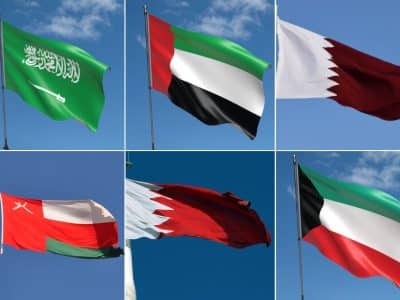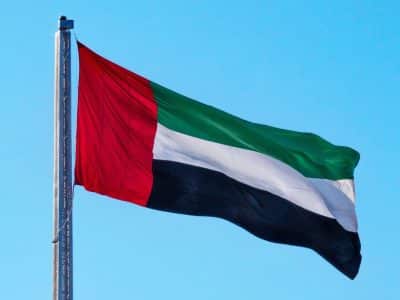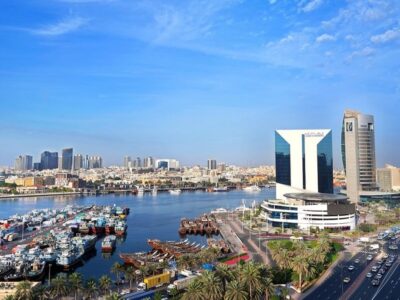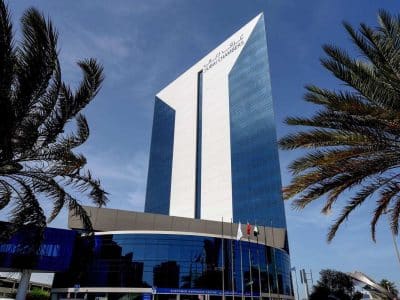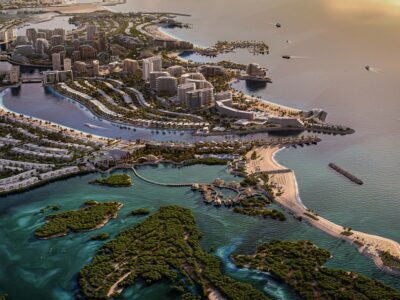Lebanon’s economic crisis is not only having a crushing impact on the extremely poor but it’s shrinking the country’s middle class.
Following the port explosion on August 4 which shook Lebanon to the core, middle class neighbourhoods in Gemmayzeh and Mar Mikhael in Achrafieh, Beirut are struggling to recover after severe damage to homes and businesses.
These middle-income citizens were not rich but managed to pay rent and send their children to decent schools. It is much harder now, as they are struggling to make ends meet.
The real challenge facing Lebanon is that this group, which represents the bulk of the country’s human capital, may now shun the uncertain economic opportunities in Lebanon and seek to emigrate.
The middle class has contracted from over 57 percent of the population in 2019 to less than 40 percent in May, according to latest figures issued by The United Nations Economic and Social Commission for Western Asia (ESCWA).
Above all, the middle class, which consisted 75 percent before the civil war in 1975, has lost approximately two-thirds of its purchasing power.
Assessing losses
In the Gemmayzeh neighbourhood in Ashrafieh, which was severely affected by the massive explosion in the port, residents and shopowners are still assessing their material losses, some of whom are waiting to receive aid, and some are ruling it out.
Rabih Chamoun, 50, owner of a grocery, estimated the losses at $5,000. He said: “We used to be from the so–called middle class, but after many crises, the explosion at the port is the latest catastrophe, we are broken, you can say we are now between poor and middle class.”

Analysts says that when a middle class tends to almost disappear in any country, it brings a total imbalance to the whole system and a social disruption.
Camille Sayegh, 40, owner of an electronic gadgets store, said: “Before the economic crisis, my net income was around 1,500,000 Lebanese Pounds ($1000) per week but after the crisis my income dropped to about 500,000 Lebanese Pounds ($70). You see the big difference. After the blast of the port, we are destroyed as a middle class, even if the damages are not big.”
In a report on Lebanon’s emerging economic and social situation, ESCWA identified four major factors that have affected the situation quite negatively – political instability, the economic and financial crisis, the COVID-19 epidemic, and the Beirut Port explosion on August 4, which has already claimed more than 180 lives and injured more than 6,500 people.
In terms of impact assessment, the headcount poverty rate is expected to jump from 28 percent in 2019 to 55 percent in May 2020. The corresponding increase in extreme poverty rose from 8 percent to 23 percent. This brings the total number of the extremely poor and poor among the Lebanese population to 1.1 million and 2.7 million. The latter is an increase of 1.3 million among the poor, whereas the equivalent rise in the number of extremely poor is 750,000.
Headcount poverty and vulnerability rates are expected to increase further as a result of rising inflation and the impact of the port explosion, particularly affecting incomes and food availability and prices. Few in Lebanon will be spared the negative consequences of these multiple overlapping shocks.
Patrick Saade, 35, father of three children, sits in the middle of his damaged apartment in Gemmayzeh, protecting it from potential theft. Distressed, he told Arabian Business: “Our life was normal, we can afford to buy everything we need, but our life has radically changed for the worse a year ago, my income and purchasing power have declined, and meeting our basic needs became difficult. After the explosion, everything is gone, and we have to start over. We do not have the money to repair the house, and we are waiting for help that may not come. As you can see, I am in the middle of a crisis, not a middle class.”
The Beirut Port explosion will further diminish business and individual holdings of real estate and other capital, and their capacity for trading and economic activity.
Economists identify four essential policy responses to reverse the crisis. First, establishing a national solidarity fund is a crucial policy response to tackle the country’s humanitarian crisis and close the poverty gap. Second, bolstering food and health security and social protection, which urgently needs donor support. Third, addressing this crisis will require the country to transform quickly and adopt various coping mechanisms and, fourth, enacting necessary economic governance reforms, in addition to enhancing transparency and accountability.
Unequal wealth distributions
Lebanon had one of the most unequal wealth distributions in the region and the world, and one of the highest concentrations of billionaires per capita. The top 10 percent of adults owned 70.6 percent, or $151.4 billion, of all estimated personal wealth in the country in 2019, according to ESCWA. However, these figures are expected to decline in 2020 and the affluent group will shrink significantly from 15 percent to 5 percent of the population.
In 2020, the top 10 percent in Lebanon is projected to hold $90.8 billion of wealth, a 40 percent drop year-on-year as a result of the banking crisis, the associated restrictions on access to financial wealth, and the expected reduction in the value of high-end land, real-estate property and natural resources, which are represented heavily in the portfolios of the wealthiest nationals.
